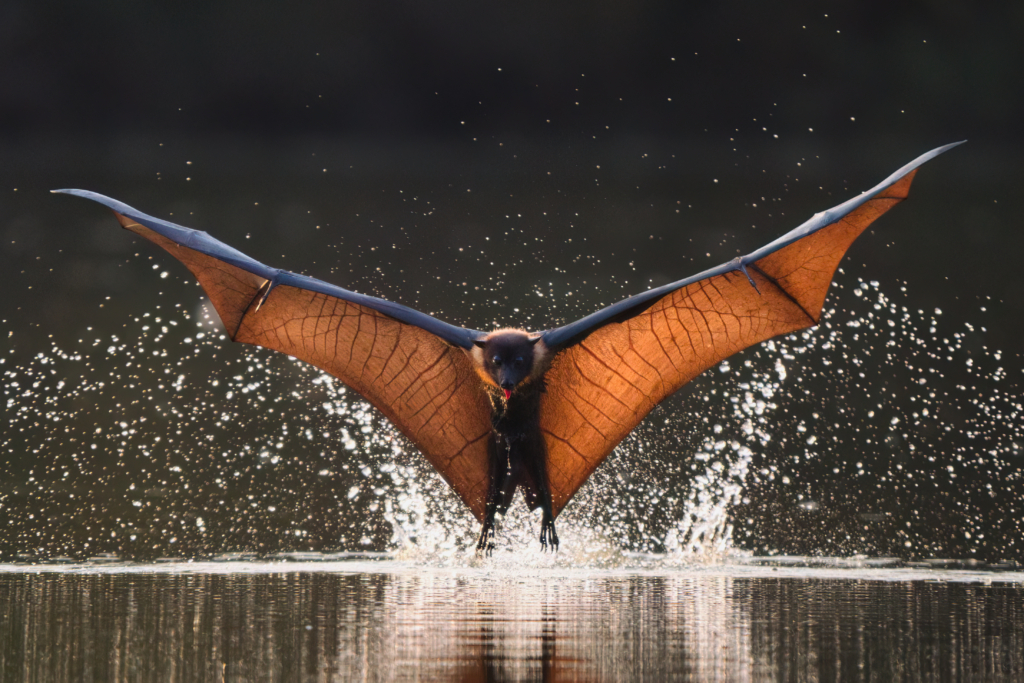The Indian flying fox (Pteropus medius, formerly Pteropus giganteus), also known as the greater Indian fruit bat, is one of the largest bats in the world. Native to the Indian subcontinent, this flying fox is nocturnal and feeds mainly on ripe fruits—such as mangoes and bananas—and nectar. These bats live in flocks, roosting atop tall trees during the day. However, at the peak of a sweltering Indian summer near Gandhinagar, the capital city of Gujarat, India, they were observed taking frequent dips in a nearby lake in the afternoon. The peculiarity of this behavior was that only males were seen dipping their erect genitals in the water. This strange behavior warrants further investigation.
The lake was on the outskirts of the city, away from the hustle and bustle of human activity. Still, the bats stayed 100 to 300 feet away from the bank. The sun’s direction was crucial, as I wanted it to illuminate the bats’ eyes while filtering through their skin. So, I positioned myself with the sun slightly behind the diving bats.
The action was fast and unpredictable, requiring gear that could focus quickly, had a high fps, and could be handheld despite a long focal length. To have the bat occupy most of the frame, I had to use an effective focal length of 1000mm. The OM System’s OM1 mark 2, equipped with a 150-400mm lens and a built-in 1.25x teleconverter, proved invaluable with its pro-capture mode and 50 fps drive. The final shot was taken at 500mm, f5.6, 1/2000s, ISO 3200.
Witnessing these Indian flying foxes taking a dip in the lake was a unique and captivating experience. The image captured not only showcases their fascinating behavior but also highlights the importance of continued observation and research into the animal kingdom.

